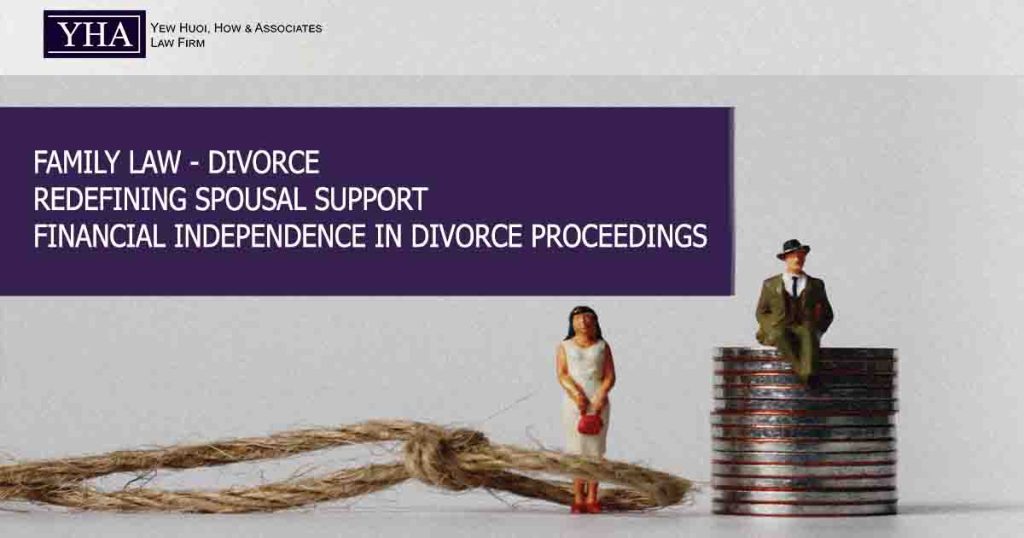1. Illustrative scenario:
X (husband) and Y (wife) are both employed as insurance agents. They registered their marriage in October 2014 and welcomed their son, Z, in 2016.
Over time, their marriage deteriorated due to frequent arguments and conflicts. Y accused X of having extramarital affairs based solely on a shirtless selfie. Y further escalated tensions by uploading a video with disparaging remarks about X, knowingly tarnishing his image and reputation.
In 2019, Y and Z left the matrimonial home. In October 2020, Y filed for divorce, and X responded with a cross-petition in December 2020.
Y seeks a one-time spousal maintenance payment of RM750,000 from X, and maintenance for Z either as a lump sum of RM1.8 million or a monthly amount of RM15,000.
Issues:
- Should financially independent women expect spousal maintenance from their former husbands upon divorce?
- In the current age of gender equality, should financially self-reliant women share the responsibility of maintaining themselves and their children after divorce?
2. Laws & Legal Principles:
- Section 77(1) of the Law Reform (Marriage and Divorce) Act 1976 (LRMDA) grants the court discretionary power to order spousal maintenance, as indicated by the use of the term ‘may’.
- When assessing maintenance, the court considers the degree of responsibility for the marriage breakdown and applies the ‘means and needs’ test according to Section 78 of the LRMDA 1976.
- Key factors in the ‘means and needs’ test:
- The current and foreseeable future income, earning capacity, property, or financial resources of each party;
- The current and foreseeable future financial needs, obligations, and responsibilities of each party;
- The standard of living enjoyed by the family before the marriage breakdown;
- Any existing health, physical, or mental disabilities of the parties;
- The respective contributions of each party to the welfare of the family; and
- The duration of the marriage.
3. Application to Scenario:
- In this scenario, the court is likely to find that the marriage’s irretrievable breakdown was due to Y’s actions, as there is no solid evidence supporting her allegations of adultery against X.
- Regarding the ‘means and needs’ test, the fact that Y never sought interim maintenance while living apart from X raises questions about the urgency of her financial needs. Given Y’s ability to earn sufficient income, it would be unjust for X to bear perpetual spousal maintenance. The court will likely require Y to share the financial responsibility for their child, Z.
4. Reference cases:
- ACH v PAY [2024] 8 MLJ 114
- Shameni Pillai a/p PB Rajedran v. S Arulselvam a/l Sanggilly and Rafidah bt Mat Taib (responden bersama) [2010] MLJU 1333; [2011] 6 CLJ 782
- V Sandrasagaran Veerapan Raman v. Deetarassar [1999] 5 CLJ 474

